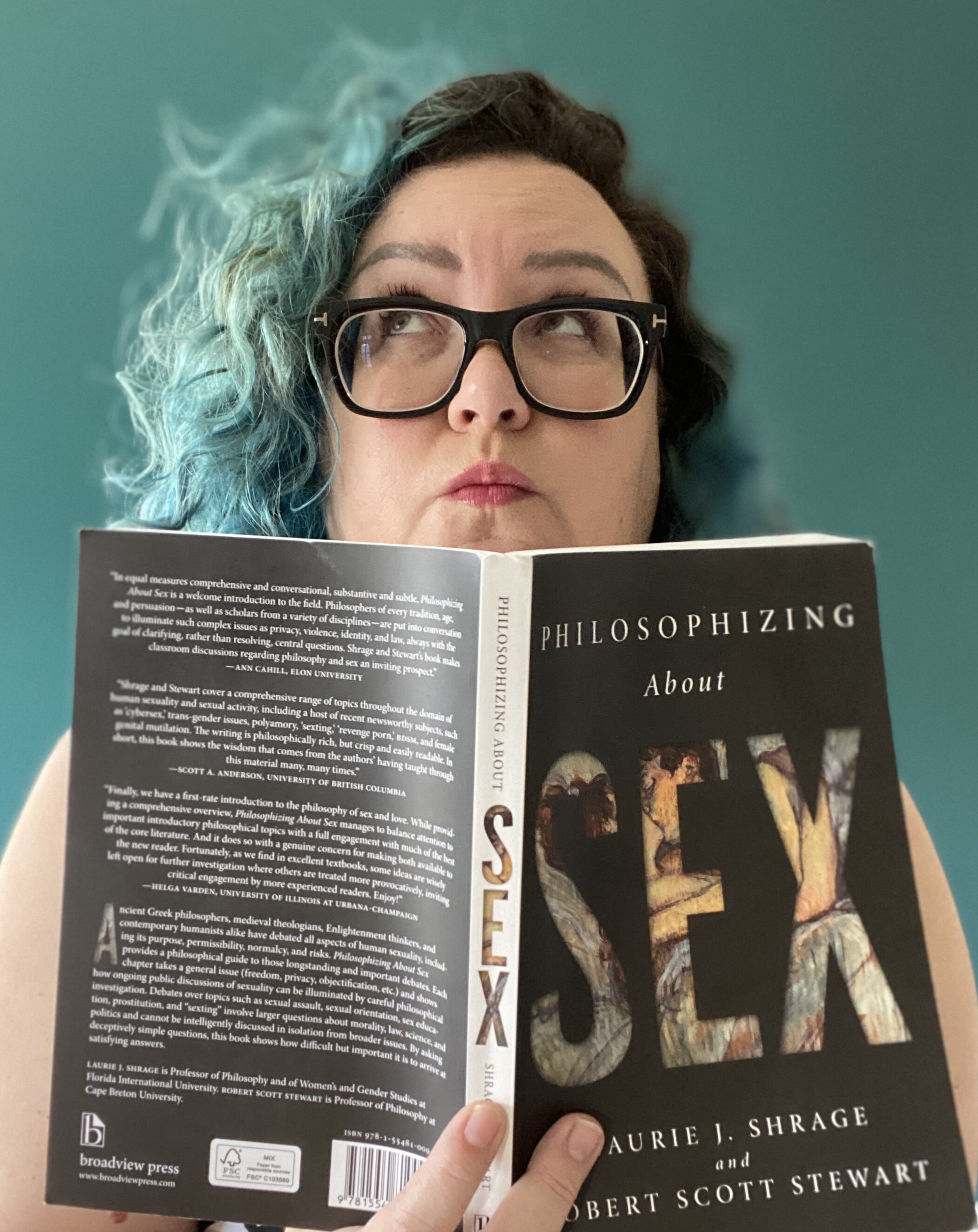Sex Educator & Founder of The Pleasure Anarchist: Katy DeJong
Katy DeJong (she/her) is a sex educator, philosopher and founder of The Pleasure Anarchist. She explores how the physical, and psycho-social experiences of infertility impact how we express ourselves, sexually. Through her workshops, writing, and advocacy work, she facilitates the deep introspection necessary for sexual healing and body liberation. Pleasure Anarchy is a term she uses to communicate her commitment to challenging any system or culture that creates or upholds moralistic views about bodies, the value they possess, and the pleasure they’re allowed to feel. Beliefs that prioritize certain bodies and experiences over others, based on sexuality, body size, health & ability, race, gender, or parental status are critiqued.
Here she answers the Mama Sex Six:
What is the first thing that comes to mind when you hear the phrase "mama sex"?
When I hear “mama sex” it feels loaded. I tried for a long time to gain admittance into the mom- club and it didn’t happen for me, due to unexplained infertility. Anything tagged with mama or mom, like “mom bod” or “mom brain” feels a bit like not being able to enter beyond the velvet rope of an exclusive club.
What inspired you to work/create/advocate on the topic of "mama sex"?
I help women navigate through the sexual impacts of infertility and childlessness. Femininity, body image, self-worth, and mental health all take a huge hit when people experience infertility and those things play crucial roles in how we relate to ourselves, sexually. After my own experience with infertility and subsequent childlessness, I went to school to study philosophy and spent the next 5 years concentrating in the philosophy of sex. People say you tend to gravitate towards studying what you, yourself need. In my case that was absolutely true. A part of me felt broken because of my body’s inability to get pregnant and those feelings of brokenness seeped into many areas of my life.
I held a lot of assumptions about my value as a woman and partner that were based on my ability to nurture and mother. I had assumptions about what my sexuality and sexual expression should be like, that were based on my body and its size and shape. I needed a lot of time and space to sort out the validity of these beliefs. I didn’t go back to school with the expectation that philosophy would help me sort through these things, but it was the happy accident of my life walking into that philosophy of sex and love class. Philosophy helped to heal me by teaching me how to think critically about the world around me. And it just so happened that the world around me, at that time, revolved around motherhood and sex. Now that I’m firmly on the other side of the grief associated with infertility and childlessness, I want to help others navigate through the waters a little more smoothly.
In your work/practice/art, what are the biggest hurdles mothers are facing in terms of their sexuality?
I think one of the biggest hurdles for many women-identified folks, moms or not, is overcoming the impacts of living in a very sex-negative society with rigid beliefs about femininity. The subtle messages of “be small, quiet, nurturing and pleasing” are everywhere and in everything. We absorb and internalize these traits as though they’re virtues that signal that we are “good women” and “good moms”. Not only is that not true, but those traits can sometimes run counter to exploring our sexual selves. If you believe that you should be accommodating and pleasing it may be difficult to give yourself permission to take up space and prioritize your own pleasure. If you think your value lies in being able to nurture others, it may feel uncomfortable to nurture your own desires. One of the biggest hurdles is unlearning all the false beliefs we have about ourselves.
What do you think society at large should know about motherhood and sexuality? And what is society getting wrong right now in regards to it?
Motherhood and sexuality can and do coexist. The two aren’t mutually exclusive. Generally speaking, I think there’s a collective fear of female sexuality because it represents wild, untamed freedom and autonomy. A woman who is sexual and has her own desires is a woman who is paying attention to herself. Which means that she’s not in constant service of someone else. But because we expect women to collapse their identities into the service of their children and families, it’s no wonder (to me at least) that many mothers struggle to relate to themselves, sexually. Sexual expression needs the time and room to breathe-to become what it will become. But if the expectation is that women attend to everyone and everything before themselves, there isn’t much time left for sexual exploration.
What piece of sex advice would you give mothers? Was there something you wish someone had told you?
My advice would be to throw out the script. Throw out the script that says that sex is supposed to be a certain way or happen a certain number of times per week or month. Sex can be whatever you and your partner want it to be. It doesn’t have to involve penetration, or orgasms, or oral sex or toys or whatever else you think is an ingredient to a “normal and good” sex life. You can make your own rules on your own terms.
Let's amplify our voice: Who are some mamas you love following on social media?
@drjoli_hamilton
@fatpositivefertility
Services Katy Offers:
Katy hosts virtual workshops, works 1:1 in sex mentoring sessions and offers a variety of other sexual education resources. Sign up for her email list to get monthly nuggets of pleasure wisdom.
@thepleasureanarchist on Instagram

